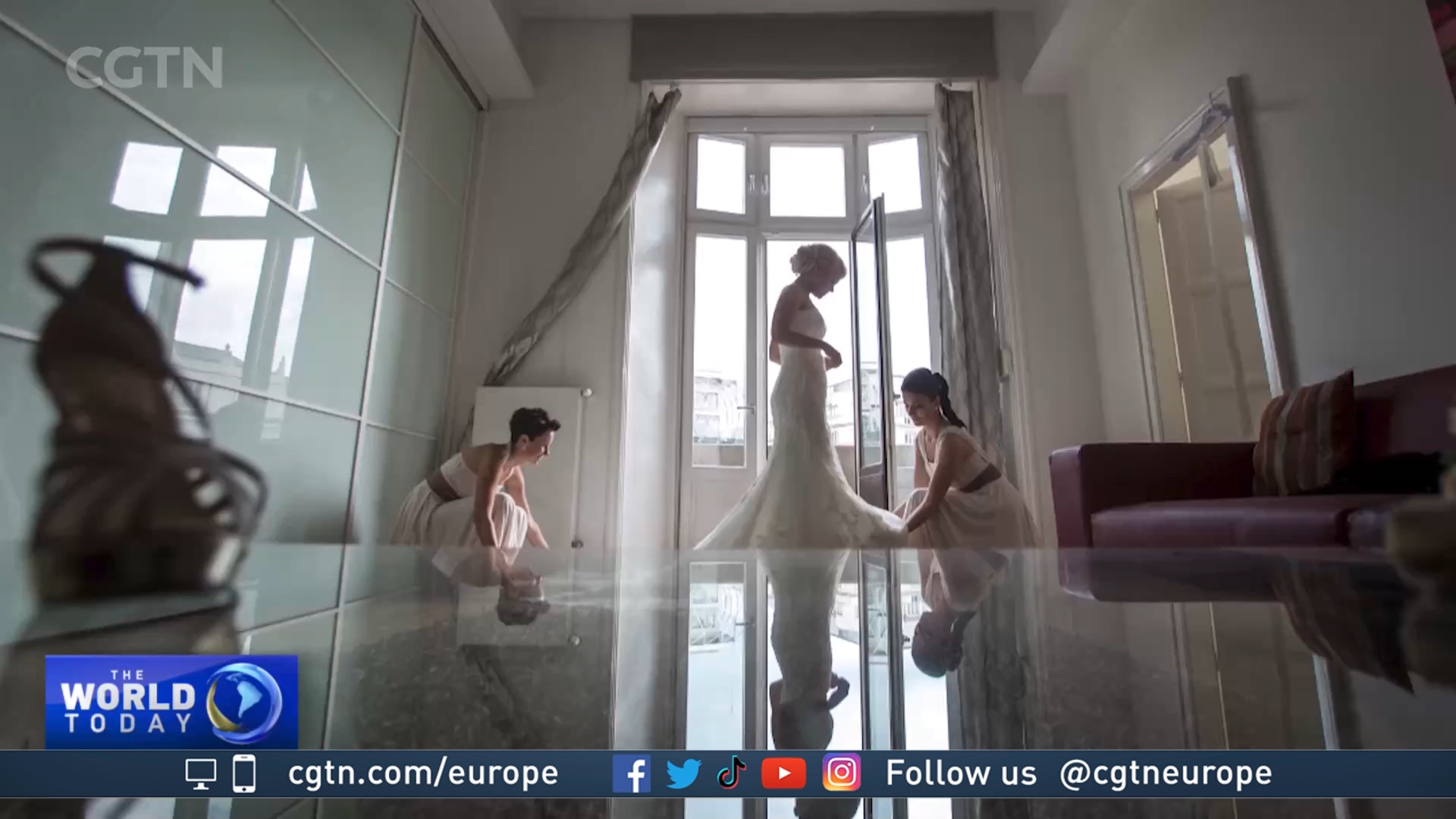03:20

Hungary's high inflation is taking a toll on the country's wedding market. According to European Union statistics, the number of couples seeking to get married has plunged to a nine-year low at the start of this year.
The country's inflation is currently 25.2 percent, the highest among EU countries. That has led to skyrocketing food prices and high energy costs – driving up the cost not just of day-to-day living, but also milestone events like weddings.
Julianna Börzsei and Balázs Gerlics plan to spend the rest of their lives together. They're counting down the days until their wedding at the end of May, but since their engagement, they've had to make some hard choices about their big day.
"A wedding dress starts at $500 going up to $3,000 and beyond," says bride-to-be Börzsei. "For an average Hungarian, it's too much. So I said to myself, if I can make the dress of my dreams on my own, I can save thousands."
The couple says they're trying to trim as much as possible from their original wedding budget, but they're still 50 percent over.
"We started to negotiate with ourselves on how to shrink everything to the original budget," says groom-to-be Gerlics. "In the end, we said that we wanted a good wedding, so we extended that budget."
READ MORE
Small businesses in Hungary struggle
Hungarian village a pioneer for renewable energy
Beer makers bitter as prices surge in Hungary
Hungary's year-on-year inflation is the highest in nearly three decades. Wedding industry insiders say the rising costs are to blame for the sharpest decline in weddings since 2014, with only 1,230 marriages recorded since the beginning of this year.
"Wedding venues are in the worst situation because the ingredients for catering and energy prices increased, and they cannot tell now what the prices will be, let's say, in September," says Zsuzsanna Balázs, executive vice president of Hungary's Wedding Provider Association.
The wedding market crash hurts providers trying to recover from the slowdown during the COVID-19 pandemic.
Couples walking down the aisle this year are saving money wherever they can. Some are cutting on the music, others are inviting fewer guests, and many are postponing their wedding altogether until the economy improves.
Wedding planners say they're having difficult conversations with their clients.
"I have a hard time quoting the cost of a wedding for my clients," says Zsuzsi Madarász, a Budapest-based wedding planner. "Catering companies and venues keep raising their prices. All I can do is ask couples to be patient."

CGTN's Pablo Gutierrez (center) has been speaking to Hungarian couples who are trimming their wedding plans. /CGTN Europe
CGTN's Pablo Gutierrez (center) has been speaking to Hungarian couples who are trimming their wedding plans. /CGTN Europe
Wedding gown makers are also pinning back their expectations because of rising prices.
"We've seen fewer customers this year. Brides are searching for bargains and less elaborate wedding gowns," says gownmaker László Anikó Kenderessyné.
Wedding event venues face a stark choice. They can raise prices to adjust for inflation, risking losing customers; or they can keep them low to try and retain customers, which could threaten their profits.
Antos Gémes, owner of the Völgymajor wedding venue, is leaning toward the latter option - with some success. "We haven't lost revenue so far," he says. "If we raised our prices, I think we would lose money because we would have fewer bookings."
Despite it all, Julianna Börzsei and Balázs Gerlics, like many other couples planning their biggest day, have to believe that love in a time of inflation will prevail.
Subscribe to Storyboard: A weekly newsletter bringing you the best of CGTN every Friday